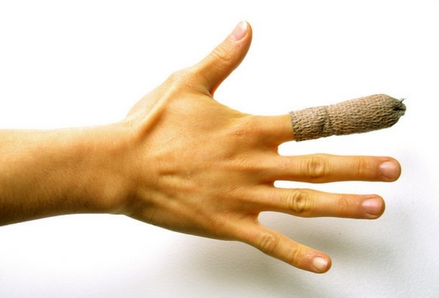What are skin and soft tissue infections?
Keeping cuts and scrapes clean is always important, but especially so when you’re travelling. As Dr. Erik McLaughlin explains in our tip sheet on assembling the perfect travel first aid kit, band-aids and antibiotic ointment are essential first aid supplies.
Skin infections are usually caused by bacteria entering and growing in a break in the skin. They’re common in travellers due to insect bites and minor trauma like cuts, blisters, scrapes, and abrasions. These infections can range from a small infection in a specific part of the skin (localized infection), like a pimple, to larger, more painful infections, such as an abscess.
Antibiotic-resistant infections
Some skin infections are resistant to antibiotics. Methicillin-resistant Staphylococcus aureus (MRSA) are bacterial strains resistant to methicillin and other antibiotics that were used to treat skin infections in the past. MRSA skin infections are becoming more and more problematic due to antibiotic resistance around the world.
Keep it clean!
You can prevent infections by taking care of injuries as soon as they happen. Proper wound management, including washing the cut or abrasion with soap and water immediately and protecting the wound until a scab has formed, can minimize the need for antibiotics.
Tips for preventing skin infections
- Wash your hands! Keep your hands clean, especially before personal grooming. Shower promptly after using public athletic and spa facilities. (Staphylococcus aureus bacteria can be picked up from shared equipment and benches.)
- Prevent insect bites.
- Avoid scratching insect bites. Oral antihistamines can help reduce itching.
- Never share personal items such as razors and towels.
- Avoid tattooing, shaving, and waxing during travel.
- If you have a chronic skin condition such as eczema or psoriasis, ask your health practitioner about strategies for managing your skin condition while you travel.
- If you have an abrasion, cut, or scrape, wash it immediately and thoroughly with soap and water and keep it protected with a band-aid. Consider carrying a skin cleanser to keep the injury clean.
Treatment for skin and soft tissue infections
Seek medical attention if you notice signs of a potential skin infection. This includes redness, tenderness, swelling, or pus – even if the signs of infection aren’t near the original injury. It’s especially important for travellers with other medical conditions (such as diabetes) to know the signs of a skin infection and to see a health practitioner promptly if you suspect an infection.
There are several medications available to treat skin and soft tissue infections, including more complicated infections caused by MRSA and infections from animal bites. If you’re travelling to a remote destination or you’ve had serious skin infections in the past, talk to your health practitioner about bringing a prescription antibiotic treatment on your trip.
This post is based on a section of the IAMAT Guide to Healthy Travel, by Elaine C. Jong, MD and Anne Terry, ARNP. IAMAT members can download the Guide from our eLibrary. The Guide is a comprehensive resource for travellers, with information on everything from skin infections and assembling your first aid kit to antimalarial medications and prevention of altitude illness. The 2016 edition will be available on August 15th, 2016.
Photo by FreeImages.com/Linden Laserna.



